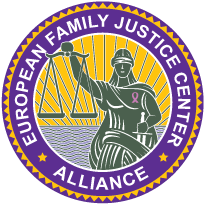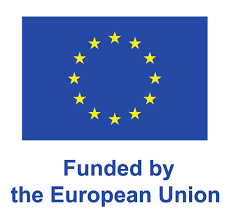7th international EFJCA Conference
Program Day 1
Monday 6.10.25 - 9.30-17.30 (Greek Time), Heraklion, Aquila Atlantis hotel
09.30
Registration
10.00
Opening
by Nicholas Spetsidis, UWAH – Pascale Franck and Bert Groen, EFJCA
10.15
Welcome
by Mary Pachiadaki President of Board Union of Women Association of Heraklion
10.30
The role of tackling gender-based violence and the role of local authorities
by Georgia Milaki, Deputy Regional Governor for Culture and Equality Region of Crete
11.00
A bird's-eye overview of Family Justice Centers and Multidisciplinary Models
In a fast-paced overview, we explore how cross-sector collaboration transforms responses to gender-based and domestic violence, and how it unites professionals around a shared mission of safety, empowerment, and lasting change.
by Dries Wyckmans, Policy Advisor 'Veilig Huis' (the Flemish FJC's), Agency for Justice and Enforcement, Flemish Government and Bert Groen, EFJCA
11.30
Coffee break
12.00
Panel Discussion: Advancing Gender-Based Approaches in Multidisciplinary Responses to GBV and DV
This panel will explore the critical role of a gender-based approach in addressing gender-based and domestic violence, with insights drawn from international frameworks and monitoring reports. Special attention will be given to key lessons from GREVIO evaluations, the EU Directive, and the recent OECD report. The session includes time for questions from the audience.
Panel Host: Melina Daskalakis, Lawyer, Legal Advisor
Speakers:
- Maria Andriana Kostopoulou (GREVIO), Implementing the Istanbul Convention: Gender perspectives and multidisciplinary insights.
- Marijke Weewauters, Senior advisor on national relations and strategic policy advisor, Institute for the Equality for Women and Men Belgium, and Belgian representative in the COPA, the Council of Europe's monitoring body on the Istanbul Convention. "The New EU Directive: Implications for GBV Policy and the Sustainability of Multidisciplinary Centers"
- Doron Wijker, OECD findings: How are governments shaping effective multi-disciplinary responses to gender-based violence and domestic violence?’ to ‘OECD findings: How governments are shaping multi-disciplinary responses to gender-based and domestic violence’?"
13.00
Lunch
14.30
Experiences of FJCs in Europe: Building, Sustaining, and Centering a multidisciplinary approach
In this session, speakers from several European countries will share how Family Justice Centers and related multidisciplinary models have taken shape in their local and national contexts. Through storytelling and visual impressions, we explore how these centers were built, how they strive for sustainability, and how they embed a strong gender-based approach in their daily work. Speakers will reflect on both the opportunities and challenges they face in their regions, offering inspiration and practical insights for professionals across Europe.
Contributions from:
- Netherlands – Tanya Hoogwerf, FJC Filomena Rotterdam
- Italy – Giussy Barbara, FJC Milan
- Belgium – Lilith Roggeman, Veilig Huizen Flanders
- France – Violette Perrotte, Re#Start, Maison des Femmes
- Iceland – Jenny Valberg, FJC Bjarkarhlíð Reykjavik
15.30
The Development of the FJC in Heraklion
Highlights of the process, structure, and key experiences in building a Family Justice Center in the Heraklion: the opportunities this journey has brought, as well as the challenges faced along the way.
by Nicholas Spetsidis, UWAH
15.45
Coffee break
16.15
From Surviving to Transforming: Understanding Perpetrators and Strengthening System Accountability
by James Henderson
James Henderson brings a compelling and deeply personal perspective to the conversation on domestic violence. Drawing from his own experience as a survivor of family violence and his decades of work in offender accountability, probation, and system reform, he explores the complex profiles of perpetrators and the critical need for coordinated, informed responses. This keynote highlights the responsibility of institutions to not only hold perpetrators accountable but also to ensure safety and justice for victims. With clarity and passion, Henderson challenges professionals to move beyond victim-blaming and center their efforts on systemic change and perpetrator-focused strategies.
17.15
Closure
by Nicholas Spetsidis, UWAH



